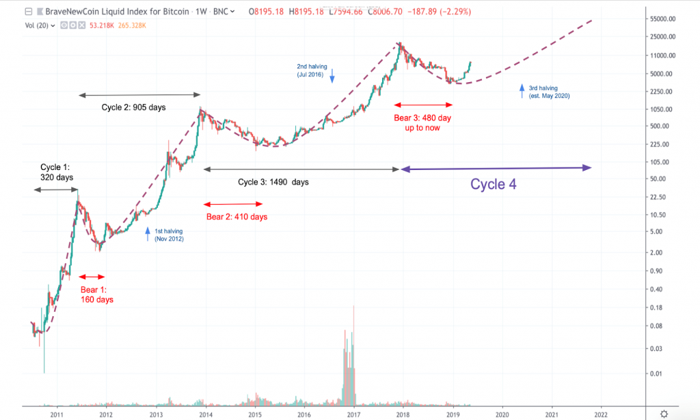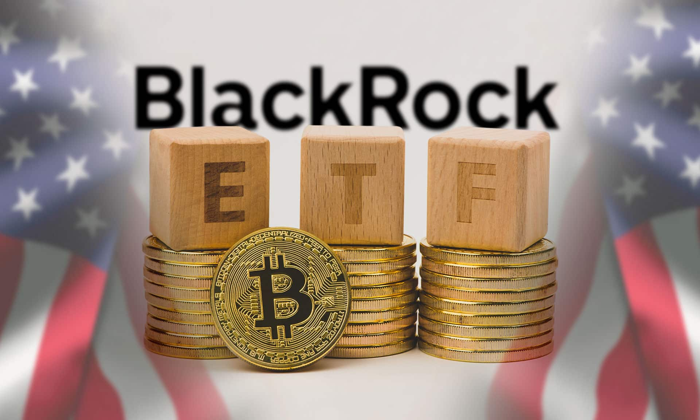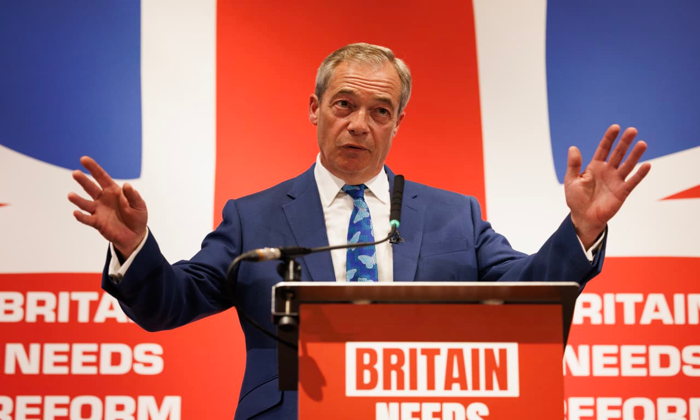Tesla crypto holdings have recently come under the spotlight as the automaker reported approximately $951 million in digital assets in its latest earnings disclosure. Despite a disappointing quarterly result, with revenue of $19.34 billion falling short of analysts’ expectations, the company maintained its investment strategy in cryptocurrencies, particularly bitcoin. Notably, Tesla’s bitcoin holdings stood still, indicating no recent transactions, as the Financial Accounting Standards Board mandates corporations to evaluate digital assets at market value every quarter. This means that any fluctuations in bitcoin’s price, such as the recent decline, will directly impact Tesla’s financial statements and overall valuations of its crypto portfolio. As investors closely monitor the Tesla bitcoin report, CEO Elon Musk’s vision for digital assets continues to shape discussions around the company’s future in the increasingly competitive electric vehicle market.
The digital currency landscape is witnessing a significant shift, highlighted by Tesla’s approach to crypto investments. Even as the company grapples with earnings misses and shifts in revenue expectations, its strategy remains focused on maintaining substantial bitcoin reserves. The electric vehicle titan, led by Elon Musk, has not engaged in transactions recently, reflecting a cautious stance amid a volatile market environment characterized by bitcoin price declines. Additionally, the Financial Accounting Standards Board’s new regulations are reshaping how publicly traded companies report their digital asset holdings. This shift could influence Tesla’s financial strategies going forward, as stakeholders analyze the implications of marking digital assets to market on a quarterly basis.
Understanding Tesla’s Crypto Holdings
Tesla, the electric vehicle giant, has garnered attention for its substantial investment in cryptocurrency, particularly bitcoin. As of the latest earnings report, Tesla maintains nearly $1 billion in digital assets, specifically 11,509 bitcoins valued at approximately $951 million. Despite the fluctuating value of bitcoin and the recent price decline, Tesla has not engaged in any transactions involving their crypto holdings in the past quarter, indicating a strategy of retaining their investments during turbulent market conditions.
This continuation of holding digital assets aligns with Tesla’s broader embrace of innovative technologies that reflect Elon Musk’s vision of the future. Moreover, the recent changes mandated by the Financial Accounting Standards Board (FASB) require companies to precisely report the worth of their digital assets quarterly, which adds layers of complexity and transparency to how firms like Tesla manage their bitcoin investments. By adhering to these regulations, Tesla positions itself as a leader in corporate compliance with cryptocurrency reporting.
Impact of Earnings Miss on Tesla’s Market Perception
Tesla’s first-quarter earnings report revealed revenues of $19.34 billion, significantly below analysts’ expectations of $21.37 billion. This earnings miss has raised concerns among investors and market analysts about the company’s growth trajectory and its ability to navigate challenges in the highly competitive electric vehicle market. A revenue shortfall may cause Tesla’s stock price to react negatively as shareholder confidence is closely tied to meeting or exceeding performance forecasts.
Additionally, when coupled with the dip in bitcoin prices—affecting the valuation of Tesla’s crypto holdings—the earnings miss presents a less-than-ideal scenario for the company’s financial outlook. Investors are left to ponder whether the investment in digital assets has further complicated Tesla’s financial position or if it remains a strategic element that could elevate Tesla’s market position as cryptocurrency adoption continues to grow.
Elon Musk’s Influence on Digital Asset Strategies
As the face of Tesla and SpaceX, Elon Musk’s fascination with cryptocurrencies significantly influences the company’s approach to digital assets. Musk’s public endorsements of bitcoin along with his engagement on social media have propelled cryptocurrency into mainstream discussions. His visionary leadership galvanizes Tesla’s strategy, leading the firm to not only invest heavily in bitcoin but also to explore new ways that blockchain technology can interconnect with sustainable energy solutions.
Musk’s advocacy for digital currencies raises questions about the future trajectory of Tesla’s investments and whether they will expand beyond existing holdings. The handling of digital assets indicates a forward-thinking philosophy that keeps Tesla at the cutting edge of market developments. As digital assets become increasingly embedded in corporate strategies, Musk’s visionary stance positions Tesla as a pivotal player in the evolving landscape of finance.
The Role of Bitcoin in Tesla’s Financial Strategy
Bitcoin’s role in Tesla’s financial portfolio has been a significant topic of discussion, particularly following the latest earnings report highlighting substantial crypto holdings. The decision to retain digital assets, even amidst a notable bitcoin price decline, suggests Tesla’s management believes in the long-term potential of bitcoin. By integrating cryptocurrencies into their financial strategy, Tesla not only diversifies its asset base but also positions itself strategically against inflation and market volatility.
Moreover, Tesla’s substantial investment in bitcoin aligns with broader trends where corporations are increasingly incorporating cryptocurrencies into their treasury strategies. This move could attract a niche market of investors who value companies holding digital assets. Given the advantages of cryptocurrencies—including decentralization, potential for high returns, and innovative technology—Tesla’s involvement with bitcoin signals confidence in the future of digital finance.
Assessing the Risks of Holding Digital Assets
While Tesla’s substantial crypto holdings showcase bold investment strategies, they also bring inherent risks that must be thoroughly assessed. The volatility of bitcoin’s value poses a significant risk to Tesla’s financial health, especially if the prices continue to fluctuate dramatically. As seen in their current holdings, the value has dipped due to market conditions—a potential red flag for stakeholders concerned about the reliability of such investments.
In addition, the recent guidance from the Financial Accounting Standards Board (FASB) regarding digital assets necessitates increased scrutiny and reporting obligations. Compliance with these regulations not only demands a transparent approach but also incorporates additional layers of risk management. Tesla must navigate these complexities while balancing their innovative ambitions with the inherent instability of cryptocurrency markets.
Tesla’s Strategy Amidst Bitcoin Market Challenges
Tesla’s ongoing commitment to hold its substantial bitcoin reserves appears to be a calculated decision amid prevailing market challenges. The downturn in bitcoin prices and Tesla’s earnings miss have created a cautious environment for investors; however, keeping its crypto holdings reflects a belief in the fundamental strength of bitcoin. Instead of hastily liquidating assets to mitigate losses, Tesla’s strategy focuses on long-term value retention, which aligns with their overarching business model.
Despite the risk of bitcoin price fluctuations, Tesla appears to be banking on future growth in the cryptocurrency space, potentially benefitting from eventual recovery phases. This ambitious stance could set a precedent for other corporations navigating similar market dynamics and seeking to integrate digital assets into their financial frameworks. Tesla’s approach illustrates a blend of innovation and risk management that could redefine corporate financial strategies in the digital age.
Future Implications of Tesla’s Crypto Holdings
As Tesla continues to hold a significant amount in bitcoin, the future implications could shape both its financial landscape and the broader market. Should Tesla’s decision to retain its cryptocurrency investments lead to favorable outcomes, it may encourage other firms to similarly explore digital assets as part of their financial strategies. The growth of institutional interest in crypto could foster an environment where digital currencies are more widely accepted and utilized beyond speculative investments.
Furthermore, as regulatory frameworks around cryptocurrencies evolve, Tesla’s current position could grant them early mover advantages, possibly influencing future industry standards. This pioneering approach may allow Tesla to leverage their understanding of the crypto market and apply innovative solutions that capitalize on emerging trends—positions that align well with Elon Musk’s visionary business philosophy.
Musk’s Vision for the Future of Digital Assets
Elon Musk’s trajectory in the tech and automotive sectors is mirrored in his vision for digital assets and cryptocurrencies. His enthusiastic advocacy for bitcoin and other cryptocurrencies signals an acknowledgment of their potential to disrupt traditional financial systems. Musk perceives digital assets not merely as investment vehicles but as critical components in building a sustainable future, particularly in how they could parallel advancements within energy and technology.
Musk’s vision extends to advocating for the integration of blockchain technology in various aspects of business and daily life, hinting at a world where cryptocurrencies are commonplace. This expansive perspective positions Tesla at the forefront of this evolution—potentially crafting business models that intertwine with digital assets. The synergy of sustainable technology and digital currencies reflects an innovative approach that could ignite further transformations across industries.
Navigating the Crypto Landscape: Opportunities and Threats
In the current climate, Tesla’s venture into holding cryptocurrencies like bitcoin presents a unique mix of opportunities and threats. The potential for substantial returns on crypto investments can provide Tesla with additional financial leverage, yet the unpredictable nature of these assets introduces a level of risk not found in traditional investments. As the crypto market ebbs and flows, Tesla’s decision-making processes regarding their bitcoin holding strategy will influence their longer-term financial stability and market perception.
Furthermore, as competitors in the automotive industry begin to consider or adopt similar investments in digital assets, the landscape will inevitably become more saturated and competitive. Tesla must navigate these challenges with strategic foresight, ensuring that their investments not only contribute to their overall financial health but align with their brand identity as an innovative leader. Balancing these opportunities and threats will be instrumental as Tesla continues to pave its path forward in both the electric vehicle and cryptocurrency markets.
Frequently Asked Questions
What are Tesla’s current crypto holdings as reported in the latest Tesla bitcoin report?
According to the latest Tesla bitcoin report, Tesla holds approximately $951 million in bitcoin as of March 31, which translates to 11,509 bitcoin on their balance sheet.
Why did Tesla’s crypto holdings decrease in value according to the latest financial earnings miss?
Tesla’s crypto holdings decreased in value primarily due to the bitcoin price decline between the quarters, affecting the overall market valuation of their digital assets.
How does Elon Musk view digital assets like bitcoin in relation to Tesla’s financial strategy?
Elon Musk has been a proponent of digital assets like bitcoin, integrating them into Tesla’s financial strategy and maintaining significant crypto holdings without selling in recent months.
What regulations from the Financial Accounting Standards Board affect Tesla’s reporting of crypto holdings?
The Financial Accounting Standards Board (FASB) now mandates companies like Tesla to mark their digital assets to market quarterly, impacting how Tesla reports its bitcoin and other crypto holdings.
Has Tesla sold any of its bitcoin in the last quarter?
Tesla has not sold any of its bitcoin in the last quarter, as indicated by their latest earnings report, which revealed no transactions involving their bitcoin holdings.
How do Tesla’s crypto holdings impact its overall financial performance?
Tesla’s crypto holdings contribute to its overall financial performance; however, with recent earnings miss and bitcoin price decline, these assets’ market value has fluctuated, affecting perceived financial health.
What does the future hold for Tesla’s digital assets given the current market trends?
Given the current bitcoin price decline and regulatory environments, Tesla’s approach to its digital assets may evolve, but company leaders, including Elon Musk, are likely to retain a long-term strategic view on these cryptocurrencies.
How much revenue did Tesla report in the latest financial earnings miss?
In the latest financial earnings miss, Tesla reported revenue of $19.34 billion, falling short of analysts’ expectations of $21.37 billion.
What is the market capitalization of Tesla’s bitcoin holdings currently?
Tesla’s bitcoin holdings currently have a market capitalization estimated at $1.049 billion, reflecting the value of their 11,509 bitcoin based on recent market conditions.
Are Tesla’s crypto holdings at risk due to market volatility?
Yes, Tesla’s crypto holdings are subject to market volatility; fluctuations in bitcoin’s price can significantly affect the value of these digital assets on their balance sheet.
| Key Points | Details |
|---|---|
| Tesla’s Crypto Holdings | Tesla holds approximately $951 million in bitcoin as of March 31, 2025. |
| No Recent Transactions | Tesla did not sell any digital assets in the last quarter. |
| Impact of Bitcoin Price | The decrease in crypto holdings value is attributed to the depreciation of bitcoin’s price. |
| Financial Reporting Changes | New FASB rules require quarterly marking of digital assets to market. |
| 1st Quarter Revenue | Tesla reported $19.34 billion in revenue, below expectations of $21.37 billion. |
| Market Reaction | TSLA shares increased by over 2% in after-hours trading following the earnings report. |
Summary
Tesla crypto holdings have become a significant aspect of its financial portfolio, with the automaker reporting $951 million in bitcoin as of the latest quarter. Despite the drop from previous holdings, this value reflects the firm’s strategic position in the volatile crypto market. Tesla’s decision to retain its crypto assets rather than engage in selling underscores its commitment to the digital space amidst changing financial regulations. As the market continues to evolve, Tesla’s crypto investments could play a pivotal role in its financial strategy.
Tesla crypto holdings have become a pivotal talking point as the electric vehicle manufacturer navigates its latest earnings report, revealing a staggering $951 million in bitcoin assets. Maintaining such a substantial stake in digital assets highlights CEO Elon Musk’s commitment to cryptocurrencies, despite the recent bitcoin price decline that has affected many investors. Interestingly, the Financial Accounting Standards Board (FASB) has mandated that firms like Tesla disclose their digital asset valuations quarterly, offering transparency in a volatile market. Although Tesla’s earnings missed expectations with a reported revenue of $19.34 billion, the company’s sustained crypto investments signal a strategic approach to leveraging digital currencies. As analysts delve into the Tesla bitcoin report, it’s clear that these digital holdings are as crucial to the company’s narrative as its innovation in electric vehicles.
In the realm of electric vehicles and innovative finance, Tesla’s cryptocurrency investments remain a focal point of discussion, particularly following the company’s recent financial disclosures. The significant digital asset valuation of approximately $951 million not only emphasizes CEO Elon Musk’s affinity for blockchain technologies but also raises questions about the impact of current market conditions on such investments. With a requirement from the Financial Accounting Standards Board (FASB) to assess digital holdings quarterly, firms are now under increasing pressure to report performance accurately. As Tesla navigates through an earnings miss, the relationship between its automotive success and its holdings in virtual currencies is under scrutiny. Such dynamics reflect a broader trend in the corporate landscape, where companies are considering the integration of digital currencies into their financial strategies.














